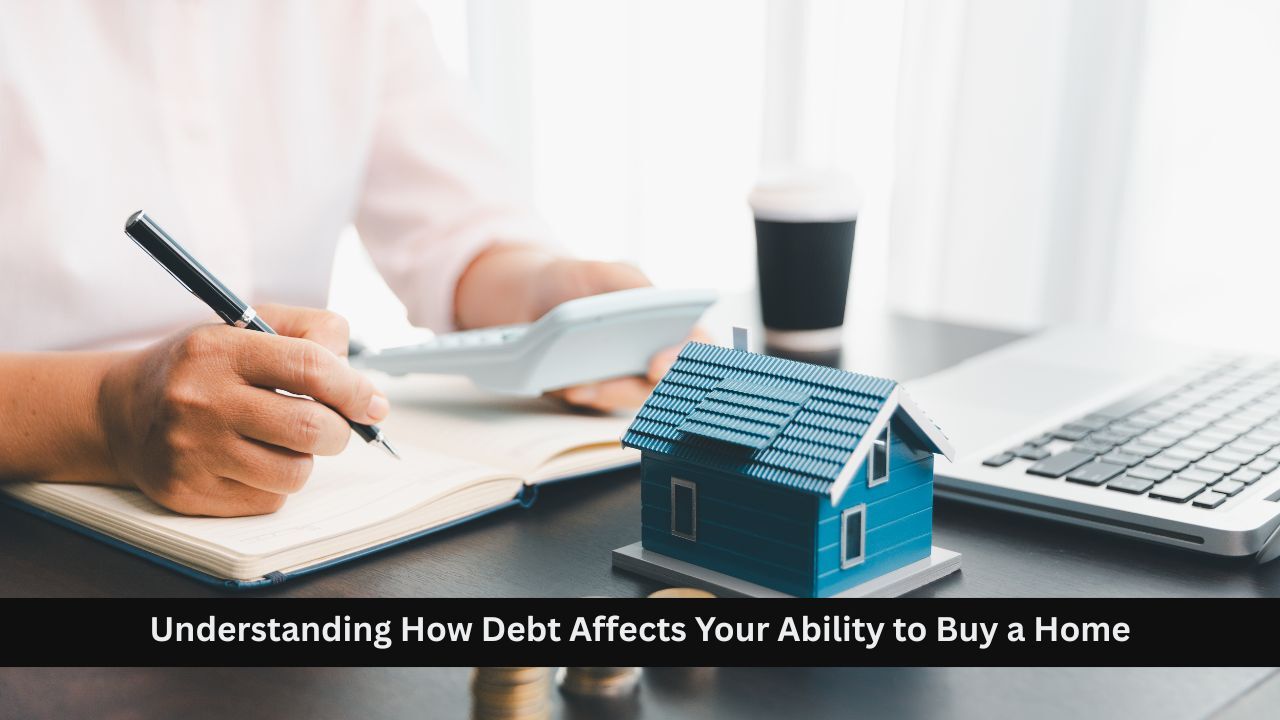Understanding How Debt Affects Your Ability to Buy a Home
 Many future buyers think they must eliminate every debt before applying for a mortgage. Reducing debt is helpful, but it is not a requirement for homeownership. You can qualify for a loan even if you have credit cards, student loans or a car payment. What matters most is how well you manage those obligations and how they fit into your overall financial picture.
Many future buyers think they must eliminate every debt before applying for a mortgage. Reducing debt is helpful, but it is not a requirement for homeownership. You can qualify for a loan even if you have credit cards, student loans or a car payment. What matters most is how well you manage those obligations and how they fit into your overall financial picture.
Why Lenders Pay Attention to Your Debt
When you apply for a mortgage, the lender reviews your debt-to-income ratio. This is the percentage of your gross monthly income that goes toward debt payments. A high ratio signals financial strain, which can limit how much you are allowed to borrow and can even prevent approval in some cases.
Two buyers can earn the same income and have similar credit scores, yet qualify for very different amounts based on their existing debts. If one borrower has no consumer debt and another has one thousand dollars in monthly obligations, the second borrower will have a higher ratio and qualify for less. This is why understanding and managing your debt is essential.
What Counts Toward Debt to Income
Most lenders prefer a ratio of forty three percent or lower, although some programs allow flexibility. Debts that count toward your ratio include credit card minimums, auto loans, student loans, personal loans and legal financial obligations such as child support. If it appears on your credit report or is required by court order, it is included.
Revolving Debt Versus Installment Debt
Not all debt affects you the same way. Revolving debt, such as credit cards, carries the most risk because balances and minimum payments can change. This unpredictability can make qualifying more difficult. Installment debt, such as auto loans or student loans, has fixed terms and predictable payments. Because it is more stable, lenders can calculate it more easily. Reducing revolving balances is often the fastest path to improving your ratio.
Steps to Get Mortgage Ready
There are practical steps you can take to strengthen your position before you apply. Start by calculating your ratio. Add all your monthly debt payments and divide that number by your gross monthly income. Knowing this number gives you a clear starting point.
Next, focus on lowering credit card balances. You can stop using the card, request a lower interest rate, make extra payments or trim non-essential spending. Even a small drop in your monthly obligation can make a meaningful difference.
If your budget allows, consider accelerating payoffs on installment loans. Paying down auto loans or student loans can help lower your ratio. Avoid opening new accounts during this time, because a new payment can work against your goal.
Finally, speak with a trusted loan professional and request a pre-approval. They can review your full financial picture and help you understand where you stand. They may confirm that your debt is manageable or offer a strategy to improve your approval odds.
The bottom line is simple. You do not need to be debt free to buy a home, but you do need a clear understanding of how your debt fits into the mortgage process. Small improvements today can make a real difference in what you qualify for tomorrow.

 Owning a second home is a dream for many people, whether it is a quiet cabin by the lake, a beachfront retreat, or a mountain getaway. For others, that dream also comes with the potential to generate income through short-term rentals. However, mortgages for vacation homes and Airbnb properties are not the same. Lenders view these two types of homes differently, and understanding those differences can help you choose the right financing option for your goals.
Owning a second home is a dream for many people, whether it is a quiet cabin by the lake, a beachfront retreat, or a mountain getaway. For others, that dream also comes with the potential to generate income through short-term rentals. However, mortgages for vacation homes and Airbnb properties are not the same. Lenders view these two types of homes differently, and understanding those differences can help you choose the right financing option for your goals.